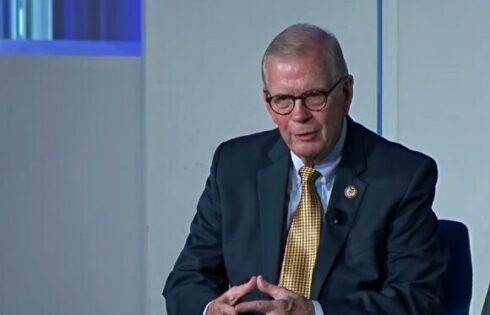
Tolerance is one of the most cherished tenets of the progressive left, but as they scream that words are violence and some ideas should not be allowed up for discussion, one law scholar recently argued that increasing tolerance actually involves allowing debate to take place — even on the most difficult of topics.
Glenn Harlan Reynolds, a distinguished professor of law at the University of Tennessee College of Law and editor of the popular Instapundit blog, wrote in a June piece for The New Criterion that some of the best arguments ever made in support of free speech are based on the idea of building up a “tolerant mind.”
“Allowing space for ideas we hate and ideas propounded by people we are inclined to hate not only trains our mind to refrain from lash[ing] out reflexively at unwelcome arguments, it more importantly frees us from the compulsion to do so,” wrote Reynolds (pictured).
“And freedom from that compulsion is not only good for free speech, it is also good for the soul,” he wrote, citing Justice Louis Brandeis’s dissent in Whitney v. California (1927): “Men feared witches and burned women, and it is the function of [free] speech to free men from the bondage of irrational fears.”
Reynolds points out that the top comment to a New York Times story regarding a federal judge who was recently shouted down at Stanford Law School is a first-hand account from a reader about how in 1969 a group of well-behaved high school students were able to sit through a lecture from members of the American Nazi Party then skillfully humiliate and school them during the Q&A.
“Yes, humiliating Nazis with your learning and knowledge is true empowerment, of a sort not to be found in persuading administrators to silence them. … [However] nowadays those administrators refer to speech as ‘harmful’ or ‘violent.’ Such labels cause students to feel that they are in danger and must be protected from the speech in question,” he wrote. “Teaching people that hostile speech is something they have the resources to overcome on their own is far more empowering than teaching that they must be protected by their elders from ideas they cannot cope with by themselves.”
Ultimately, Reynolds added, one must exercise “the muscles of tolerance, on both an individual and a societal level.”
“’Use it or lose it,’ as the bodybuilders say, and we have every reason to think that our societal tolerance muscles have grown rather flabby in recent years.”
Read the full piece at The New Criterion.
Like The College Fix on Facebook / Follow us on Twitter




Add to the Discussion